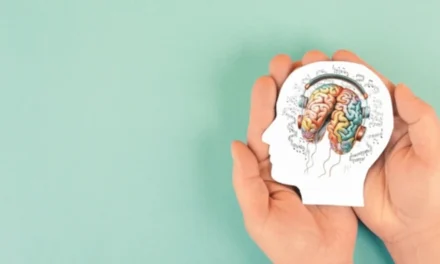Academic failure can be tough, but it’s also a chance to grow and learn. This article will show you six ways to handle academic failure well. It’s important to see failure as a chance to learn, not just a setback.
By being resilient and reflecting on your actions, you can turn failure into a positive experience. Acknowledge how you feel, don’t make quick decisions, and focus on improving yourself. This way, you’ll come out stronger and more determined than before.
Key Takeaways:
- Embrace failure as a learning opportunity for growth and self-awareness.
- Develop a resilient mindset to overcome the emotional impact of academic setbacks.
- Avoid rushing into new endeavors and instead take time to grieve and reflect.
- Pursue interests outside your academic field to broaden your perspective.
- Seek support from friends, family, and professionals to navigate the challenges of failure.
Understanding Academic Failure
Academic failure can take many forms, like failing an exam or not getting into a program1. It’s key to know the different types of failures to find good ways to cope. Failures can be things we can avoid or they can be part of the complex education system1. Knowing what kind of failure we face is the first step to fixing it.
Types of Academic Failures
Failures can be as simple as not doing well on a test or as big as not graduating1. Students often fear failing, especially if they want to get a college degree1. This fear can make them give up on their studies, worried about leaving others behind or facing more work if they succeed1.
The Blame Game and Its Consequences
When we fail, we often blame ourselves1. But blaming ourselves can hurt our self-esteem and make us afraid to try new things1. It’s important to stop blaming ourselves and start learning from our mistakes. This way, we can grow and become better1.
Seeing failure as a part of learning can help us face our fears1. Setting smaller goals can also make us feel less scared of failing1. Being resilient and learning from our mistakes is key to overcoming academic challenges1.
By understanding failures and not blaming ourselves, we can better handle school’s challenges123.
Give Yourself Time to Grieve
Experiencing academic failure can be very disappointing and even traumatic. It’s key to understand that grieving your lost academic goals is normal. Give yourself time and space to deal with feelings like anger, sadness, and frustration4. Working through these emotions helps you heal and move forward.
Grief can make you feel lost, tired, and without motivation5. But, by allowing yourself to grieve, you can start to work through the stages, from denial to acceptance5. This journey isn’t straightforward, and you might go back and forth through the stages as you face your emotions.
There’s no specific time limit for grieving. Everyone’s experience is different, and it’s crucial to respect your own pace5. Seek support if you’re finding it hard to deal with your feelings after failing academically. With patience and kindness towards yourself, you can get through this tough time and come out stronger.
“Grief can be disruptive, paralyzing, and disorienting, leading individuals to feel overwhelmed, exhausted, and unmotivated.”5
The path of grieving over academic failure is tough, but it’s a crucial step towards growth and resilience4. By giving yourself the time and space to process your emotions, you can start to heal and move forward in a positive way.
Avoid Rushing into New Endeavors
When you face academic failure, it’s easy to jump into something new. But, it’s important to embrace the stillness and uncertainty. This time of self-reflection is key to figuring out your next steps and what you truly want6.
Embrace the Stillness
Take time to reflect on your goals and priorities. This moment of looking inward can help you see if your current path is right for you. Make sure your next steps match your passions and strengths6. Don’t rush; instead, embrace the stillness as you go through this tough time6.
Reflect on Your True Desires
Use this time to find purpose and meaning outside of school. Think about what makes you happy and fulfilled. Maybe try new hobbies or interests. By doing what you love, you’ll find a new direction and motivation6.
Remember, failing in school can be a chance to grow and learn more about yourself. Take your time, reflect on your goals, and avoid rushing into new endeavors. This way, you can truly explore your real passions and interests6.
Develop Interests Outside Your Field

When you face academic failure, it’s key to spend time on things outside your studies. Hobbies, volunteering, or creative projects can help you find joy and purpose again7. They also help keep your life balanced and prevent burnout7.
Exploring hobbies and finding purpose outside school can change your life. It could be learning a new skill, enjoying nature, or helping others. These activities give you a break and a sense of achievement8. They also help you learn new things, feel more confident, and discover new career paths8.
Remember, your life is more than just school. By exploring interests outside your field, you stay balanced and focused. This helps you avoid getting stuck in your failures and find the courage to keep going8. So, try new hobbies, volunteer, or dive into creative projects. It might just help you find your way again7.
| Benefits of Developing Hobbies and Interests Outside Academics | Examples of Engaging Activities |
|---|---|
|
|
By exploring interests outside your studies, you can find purpose, balance, and resilience. These are crucial for overcoming academic failure78.
Recognize and Appreciate Your Efforts
Even when you fail in school, it’s important to see the hard work you’ve put in9. Don’t ignore the skills and knowledge you’ve picked up9. Seeing failure as a chance to grow can teach you a lot.
Learning From the Experience
When you face school setbacks, it’s normal to feel down. But, by focusing on learning from failure, you open up new doors9. Feeling valued at work makes you more engaged and productive10. The skills and insights you’ve gained are valuable for your future.
Studies show that feeling appreciated boosts happiness and well-being10. By valuing your efforts, you can grow and succeed in the future.
“Academic failure is not the end, but the beginning of a new chapter. Embrace it as an opportunity to grow and evolve.”
By celebrating your progress, you create a positive environment for success10. Ignoring your worth can harm your morale and job satisfaction. Recognize your value and the lessons you’ve learned.
Seek Support from Friends and Family

When you face academic failure, it’s key to rely on your social support network. Friends and family offer emotional support, a listening ear, and new views. These are crucial during tough times11. In a study, 84.4% of 417 participants found benefits in getting help from loved ones, with 51.3% seeing only good outcomes11.
Trust Your Own Judgment
It’s good to get guidance from family and friends, but remember, you know yourself best12. People like Richard Branson, Michelle Mone, and Simon Cowell overcame academic hurdles to succeed. They did this by trusting their own judgment12. Trust in your abilities and make choices that match your goals and dreams.
11 Yet, 39.1% of those surveyed saw downsides to getting help from family and friends11. It’s vital to balance their support with your own self-trust and decision-making.
13 Studies highlight social support‘s role in managing stress and overcoming life’s challenges13. By using your friends and family’s support, you can find your way after failing academically.
Avoid Negative Influences
When facing academic failure, it’s key to watch who you surround yourself with. People who always blame others or share failure can make you feel more anxious14. To stay positive, choose friends who support and encourage you. They can help you deal with your anxiety and move past this setback15.
Identify the impact of your social circle. If friends are always negative or reinforce bad stories, it’s time to step back16. Look for people who give you new ideas, useful advice, and emotional support when you need it.
Your mindset and who you hang out with greatly affect how you bounce back from failure. By staying away from negative vibes and building a supportive group, you can handle your anxiety better and move forward.14
Find Inspiration in Unusual Journeys
When you face academic setbacks, it’s easy to feel alone and down. But, looking for role models who have overcome failure can inspire and motivate you17. Learning from their unique paths and perseverance can help you become more resilient and gain insights for your own challenges18.
Role Models Who Overcame Failure
Oprah Winfrey was fired from her first TV news anchor job18. Walt Disney was told he had no good ideas18. Even Marie Kondo and Colonel Sanders faced rejection before succeeding18. Talking to these people or reading their stories can give you the push and strategies to beat your setbacks17.
Remember, failure is a chance to learn and grow18. By learning from those who have overcome academic hurdles, you can build resilience and confidence to move forward17.
Creativity and a willingness to take risks are key to success after facing adversity19. Take the lessons and insights from these role models. Let their stories motivate you to overcome setbacks and find your success path18.
Academic Failure as a Learning Experience
Academic failure can be tough, but it also offers chances for deep personal growth. By seeing it as a chance to learn, people can discover more about themselves. They can find out what they’re good at and what they need to work on20.
This self-discovery can help them study better, become more resilient, and understand their true interests and goals.
Embracing Failure for Personal Growth
Failure is not always bad. It can actually help people grow and learn21. Students who fail can learn to adjust their goals, handle their feelings, and see success in new ways21.
This journey can make them more flexible, critical thinkers, and better at solving problems. These skills are useful for many areas of life.
Looking at failure positively can give valuable lessons and chances to get better22. Companies like those in the pharmaceutical and financial sectors have learned from their mistakes22. By seeing failure as a chance to learn, students can become more resilient and adaptable.
Learning from failure is key for success in life and work20. By focusing on what they can learn, students can turn failures into stepping stones for growth. This helps them develop the skills and mindset to reach their goals20.
Explore Resit Options
If you can retake an exam or a course, it’s key to look into this resit option23. Students who fail can re-sit, with two main reasons: due to hard circumstances or not doing well23. To get a resit for hard circumstances, you need to show proof23.
When looking at resit options, it’s vital to know why you didn’t do well the first time23. Many things can lead to poor exam scores, so figuring out what went wrong is important23. Instead of trying to learn everything, aim to really get 70% to 80% of the material23. Practicing with old exam papers can also help you get ready for the resit23.
Keeping up your enthusiasm and drive is key while getting ready for the resit23. Joining study groups and working together can help those retaking23. Also, remember the 5 ways to wellbeing: Connect, Be Active, Keep learning, Help others, and Taking notice23. This keeps you mentally and physically well while you retake exams23.
| Resit Option | Potential Benefits | Considerations |
|---|---|---|
| Resit due to extenuating circumstances |
|
|
| Resit due to poor performance |
|
|
Looking into resit options can give you a second shot at success23. But, it’s crucial to understand the rules, limits, and what might happen23. By tackling the reasons for your first failure and focusing on specific areas, you can boost your chances of doing well the second time23.
Learn from Your Last Exam
If you’re planning to retake an exam, take the time to thoroughly analyze your previous performance. Carefully review your exam answers and pinpoint the specific knowledge gaps or test-taking strategies that contributed to your failure24. This detailed self-assessment will enable you to create a more targeted and effective study plan for your next attempt.
Identifying Weaknesses
Many educational institutions offer services that allow students to request detailed feedback on their exam performance25. Take advantage of these resources to gain a deeper understanding of where you fell short and what you can do to improve. This feedback can be invaluable in shaping your study plan and ensuring that you are better prepared for the next attempt.
Requesting Feedback
Don’t be afraid to seek feedback from your instructors or academic advisors. They can provide valuable insights into your strengths, weaknesses, and areas for improvement25. By understanding your performance in detail, you can develop a more effective strategy for learning from your past exam experience and enhancing your preparation for the next one.
Remember, learning from your last exam is a crucial step towards improving your academic performance and achieving success. Embrace this process, and you’ll be well on your way to a stronger, more confident academic future.
Create a New Plan of Action
After failing academically, it’s important to take a step back and look at your options. This careful look will help you make a smart plan26.
Begin by listing all the paths you can take. This could be retaking the exam, looking into other academic programs, or even changing your career path27. Think about what each option means for your goals, strengths, and what you can handle26.
Assessing Your Options
Creating a new plan doesn’t have to be scary28. Use templates to help organize your thoughts. Make sure your plan includes your goals, tasks, who’s responsible, and when things need to happen27. This will keep you on track as you move forward28.
Success in your plan comes from doing it, not just making it27. Be ready to change your plan when new things come up. Don’t be afraid to ask for help from teachers, advisors, or mentors26.
By taking the time to think about your options and make a detailed plan, you’re on the path to success26. Remember, this is a chance to learn and find new paths27.
Perfect Your Exam Routine
Getting ready for exams is more than just memorizing. It’s about creating a solid study plan to stay focused, calm, and do well on tests29.
Finding Your Flow State
Finding what helps you focus is key29. Start good study habits early to learn and remember better29. Don’t cram at the last minute, as it raises stress and lowers readiness29. Make a study plan to slowly learn the material.
Reducing Exam Anxiety
Even the best students can feel anxious about exams29. Use stress-reducing methods like mindfulness or exercise to lessen exam stress29. A good night’s sleep and a healthy breakfast help stay alert and handle test pressure29.
Having a positive attitude and confidence are also key for success29. Use strategies like knowing the test layout, jotting down important points, and starting with easy questions to manage stress and stay on track29. By tackling both emotional and physical aspects of exams, you can do better and succeed more.
| Technique | Benefits |
|---|---|
| Developing Good Study Habits | Improves understanding and retention of information29 |
| Avoiding Last-Minute Cramming | Reduces stress and increases preparedness29 |
| Practicing Stress Management | Helps mitigate exam-related anxiety29 |
| Maintaining a Positive Mindset | Enhances confidence and test-taking performance29 |
“Exam preparation is not just about knowledge – it’s about developing a focused, confident, and resilient mindset that can thrive under pressure.”
Don’t Delay Sharing Your Failure
When you fail academically, it’s easy to want to face it alone. But, talking about your struggles is key to healing30. By sharing with family, friends, or even your boss, you get the help you need to move forward31.
It’s scary to talk about failing, but remember, you’re not alone. Many people who have succeeded have also faced setbacks31. By getting support, you can avoid feeling isolated and find your way back32.
When you’re ready to share, pick people who will listen and support you32. Stay away from those who make you feel bad about yourself. Their negativity can make it harder to deal with your failure30.
Remember, failing doesn’t mean you’re not good enough. It’s just part of learning and growing31. By talking about your failure and getting help, you’re taking a big step towards a better future32.
Conclusion
Academic failure can be tough and emotional, but it’s also a chance to grow. By looking at it positively, you can learn a lot, become more resilient, and come out stronger33. This article has given you six ways to deal with setbacks in school.
Failure isn’t the end; it’s a chance to start anew and succeed even more33. By seeing failure as a chance, you can become more resilient. You’ll also understand your interests and aspirations better. This can lead to a more rewarding school experience that matches your values and helps you grow.
The strategies shared here, along with your openness to learning from failure, will help you face future challenges33. Use this chance to grow, trust the journey, and keep working on yourself. Even if your school path didn’t work out as planned, the right mindset can turn this setback into a stepping stone to success.





